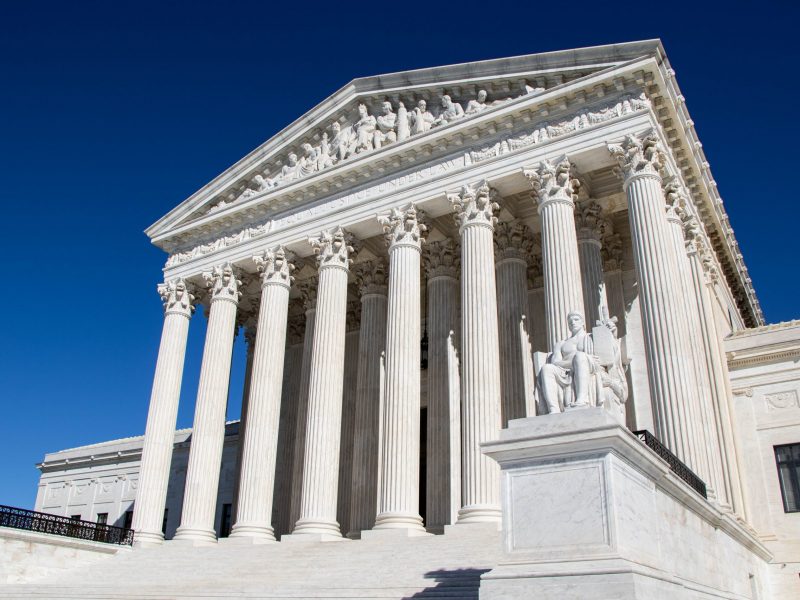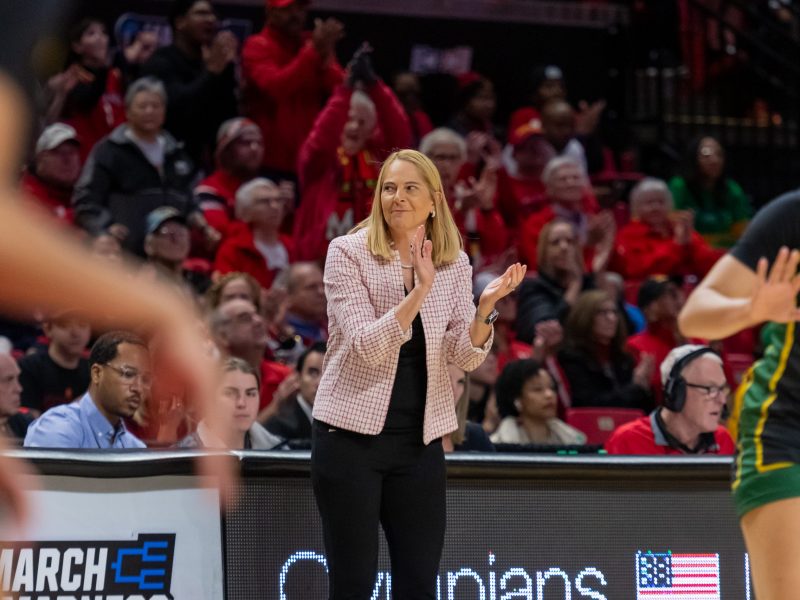In just 96 minutes tonight, filmmaker Kirk Fraser hopes he can bring closure to the story of a death he says has lingered untold for the past 23 years.
Without Bias, Fraser’s documentary about the drug overdose death of former Terrapin men’s basketball star Len Bias, will make its world premiere tonight at the Hoff Theater before debuting on ESPN Tuesday as part of the network’s “30 for 30” film series.
“It’s just an eye-opener in seeing that one mistake could cost you everything,” Fraser said.
But until now, the tale of the Bias tragedy has mainly been told in newspapers and television retrospectives, rarely garnering the attention and spotlight of tonight’s on-campus premiere.
Terrapin men’s basketball coach Gary Williams and Bias’ coach, Lefty Driesell, had been rumored to be attending tonight’s event. Driesell will likely be unable to attend due to health reasons, according to his son and current men’s basketball assistant coach Chuck Driesell.
“Obviously, the university hasn’t taken upon itself to talk about Len Bias, because it is a tragic story,” said Kevin Blackistone, a sports columnist and professor in the university’s journalism school. “It’s a cautionary tale, and I understand why people really close to it would not want to revisit it.”
Before he signed on as a production assistant with Fraser’s film crew, Cecil Clarke, a junior American studies major, knew only the basic outline of Bias’ death. After taking a semester off last spring to research Bias’ life, play back his highlight reel and conduct dozens of interviews with the people who knew him best, Clarke said he bore witness to Bias’ unique skills and character.
“He was just a dream come true,” said Clarke. “People who don’t know [about Bias] will know and realize how important his life was. And people who did know will get a more distinct perspective of his life and what happened.”
On June 17, 1986, Bias was selected as the No. 2 overall pick in the 1986 NBA Draft by the reigning champion Boston Celtics. He’d just completed his senior season at the university, in which he’d earned All-American honors and lofty comparisons to Michael Jordan.
On June 18, a day after being drafted, he signed a $1.6 million shoe deal with Reebok and visited College Park soon after to celebrate.
Bias and several friends returned to his dorm in Washington Hall at about 3 a.m., at which point they began to snort cocaine.
Media reports later indicated that Bias snorted nearly five grams of cocaine that night in the dorm, a quantity far in excess of the typical recreational amount. He collapsed some time after 6 a.m. while talking with a teammate, and was unconscious and not breathing when county ambulance attendants arrived at 6:36 a.m.
Two hours later,Bias, 22, was pronounced dead of cardiac arrest at Leland Memorial Hospital in Riverdale.
“In life, [Bias] served a purpose of coming here, shocking the world of how great of an athlete he is, and then shocking the world in saying, ‘Hey, these are the dangerous things in life as well,'” Fraser said.
The implications of Bias’ death reverberated throughout this university’s administration and Athletics Department.
Revelations of poor academic performances from student-athletes and an ongoing NCAA investigation prompted Athletics Director Dick Dull to resign in early October of that year. Three weeks later, Lefty Driesell accepted a reassignment to assistant athletics director after 17 seasons and 348 wins as coach.
“With a tragic death like that, as a society we have to find someone that’s responsible,” Fraser said. “That’s just how life works. When a situation like that occurs, someone has to be blamed for it. Someone has to take the fall for it.”
“Of a single event, the university’s probably never suffered repercussions any greater,” Blackistone said.
The university slipped into what Fraser called its “dark days.” Chancellor John B. Slaughter resigned less than two years after Bias’ death, and men’s basketball coach Bob Wade resigned three years after he was hired to replace Lefty Driesell amid allegations of improper contact with players and recruits.
With Bias’ memory still lingering, the university revamped its entire approach to managing its student-athletes — changes that last to this day.
The drug-testing program underwent massive upgrades. The admissions office established qualifying academic baselines for incoming recruits. The size of the Athletics Department’s academic support staff tripled in number immediately afterward.
“Everyone was under a microscope in terms of what are they doing at the university — not their involvement in Len Bias’ death, but what they are doing for the university? Are they really sticking with all of the guidelines?” Fraser said. “His death changed a lot with the school.”
Tonight, Fraser’s documentary, which had the blessing of Bias’ parents and includes interviews with Brian Tribble, the man who was cleared of involvement in Bias’ death, will further examine that story.
“It’s almost like a reunion,” Clarke said. “Everybody’s coming together under one roof not to focus on the negative aspect of Len Bias, just to celebrate his life, celebrate this great person.”
shaffer@umdbk.com


